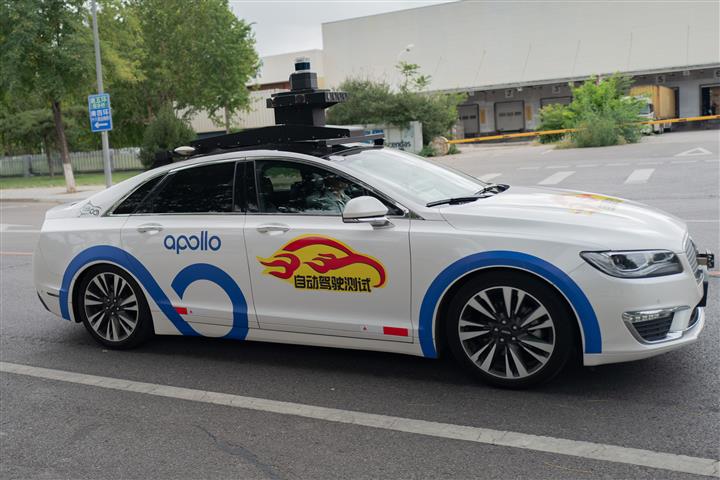 Baidu’s Driverless Taxis Hit Beijing Streets, With Free, Unbooked Test Rides
Baidu’s Driverless Taxis Hit Beijing Streets, With Free, Unbooked Test Rides(Yicai Global) Oct. 12 -- Chinese tech firm Baidu’s self-driving taxi service Apollo GO went into operation in Beijing yesterday. Users can order free test rides of the service at cab ranks in the city’s western Haidian and southern Yizhuang hi-tech districts without reservations, the firm announced on its account on China’s Twitter-like Weibo yesterday.
Its Apollo GO mini-program is available on the app stores of Xiaomi, Oppo Mobile Telecommunications, Huawei Technologies and Vivo Communication Technology, as well as the iOS App Store. Users reserve seats for the service on Apollo GO or Baidu Map. Baidu’s Dutaxi autonomous driving team is expanding, but still has a limited fleet.
Driverless vehicles are a key development orientation of Beijing’s high-precision industry, and the city will build the world’s first high-level autonomous driving demonstration zone and finish the construction of stage 1.0 and start stage 2.0 by this year’s end, Kong Lei, head of the special team for the city’s high-level autonomous driving demonstration zone, said last month, CCTV News reported.
Autonomous driving test rules mandate the presence of a safety supervisor in each self-driving taxi, but not to drive the vehicle. Apollo GO will suspend business in extreme weather.
Baidu has released new autonomous driving products. China’s new electric car-making force, the Shanghai-based unicorn WM Motor Technology, unveiled the automated valet parking technology it jointly developed with its investor Baidu last month and showcased its first brand-new mass-produced vehicle using the AVP technology, making WM Motor the first carmaker to mass produce vehicles using level 4 autonomous driving technology.
Level 4, the second highest rating, is deemed fully autonomous driving, though a flesh-and-blood driver can still take control and the vehicle has a driver’s compartment. A car at this level can manage most driving scenarios and even extremely complicated urban maneuvering without human input.
Editor: Ben Armour